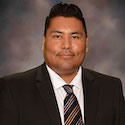It seems like you can’t go to college these days without someone asking if you’re going to graduate school. For some, the answer is clear. For others, the decision is much more complex. Here are some questions to ask yourself as you decide whether grad school is right for you.
Do You Know What You Want to Do After Graduation?
The purpose of graduate school is to study an area or discipline in detail, with the idea that you will take that knowledge and pursue a career in that field. If you don’t know what you want to do, graduate school most likely isn’t the place to figure it out.
Is an Advanced Degree Is Required for Your Chosen Career Path?
If you want to be a doctor, lawyer, or professor, an advanced degree is a necessity. You’ll have to go to graduate school to reach your career goals. But if you aren’t heading into a career that requires an advanced degree, going to graduate school may not make sense. There are plenty of jobs that don’t require an advanced degree. In fact, advancement in some careers is based on hands-on experience, not the highest degree you’ve attained.
Can You Pay for It?
Graduate school, like college, isn’t cheap. Unless you’re lucky enough to get a scholarship, or have an employer who is willing to pay for it, you will likely incur some cost by taking classes. If you already have debt from your undergraduate studies, adding more for graduate school might make that debt unmanageable. Graduate school is not meant to bankrupt you. If you have the funds to cover graduate school — and have a clear reason for going — then it may be a good choice for you. Review your funds carefully so that you’ll be in a good financial space before, during, and after graduate school.
Do You Enjoy Learning?
While graduate school can be a great way to continue learning, it should not be the sole reason to enroll in graduate school. After all, there are plenty of ways to acquire knowledge without stepping inside a classroom. Online platforms such as LinkedIn Learning, Coursera, and YouTube provide a variety of free learning materials in subjects ranging from coding to how to interview. So before you submit those applications, think about what you want to learn and whether that learning needs to take place in the classroom.
Do You Have Work Experience?
While many students prefer to go straight from undergraduate to graduate school, that doesn’t always make the most sense. Many graduate schools prefer that their students have work experience before pursuing an advanced degree — the schools want to see that you’ve spent time in the real world and have a sense of who you are and what you want before you embark on a graduate degree. They also want to ensure that you’ll be successful during and after the program, and having work experience helps. Be sure to research the program you’re interested in. If they prefer applicants with work experience, spend some time getting that experience.
Is Everyone Else Doing It?
It may seem like all your friends are going to graduate school, and you don’t want to be left out. You should go to graduate school because it will help you in your chosen career path, not because you want to do what everyone else is doing. You need to follow your own path, and do what makes the most sense for you. It’s important that you focus on what you need, and if graduate school isn’t it, that’s OK.
Deciding whether to attend graduate school is a personal choice, and should not be made lightly. There are many factors to consider before making your final decision. You may decide that you want to go, but not straight from college. Maybe you’re burnt out from the last four years of tests and papers and want a break, or maybe you need to work to save money to pay for graduate school. You may want to pursue a career in a field where graduate school won’t help you advance. There is no one right answer — there’s only the answer that’s right for you. Take your time, think about your needs, and make the decision that’s best for you!
 On Topic
On Topic
Dr. Johnny Poolaw, Delaware, Kiowa, Comanche, Chiricahua Apache, is associate director of Student Success Services at AISES.
What considerations should students keep top-of-mind when weighing post-graduation options?
Overall, it’s most important to know your goals and ask yourself what you want from a postgraduate degree and why. Will the degree provide advancement along the pathway of your desired career and ultimate goals? Do you need this degree for the field you are in? Will this degree make a difference in salary potential or job security? These are all questions you need to ask yourself when considering graduate school.
In addition, consider the investments in cost and time graduate school entails. It can be expensive, and the funding opportunities are not as abundant for graduate students as they are for undergraduate degrees. You have to consider the time and effort it takes to complete your graduate program — it will be challenging, and you may have different things going on in your life now than when you were an undergraduate student. You may now have children, a home mortgage, a partner, and a full-time job. All these can add more stress and obstacles in obtaining your graduate degree, and you should consider all of them when deciding whether to go for that postgraduate degree.
You may need to consider relocating for your graduate program, and perhaps leaving a full-time job and a steady income. As a grad student, you may be able to secure a graduate research assistantship or teaching assistant position, but it most likely will not provide the pay you are hoping for. This definitely needs to go into consideration if you have a family or house and car payments to make.
How much should the job market weigh in the decision to move on to graduate school?
It should play a part in your graduate school decision, but it shouldn’t be the only factor. You want to go into a career that will enable you to find a job, but I think many Indigenous students plan to go back to their tribal communities and work for their people. Most tribal nations would be glad to have students with their learned skills, so the job market question is a little different in relation to this. Perhaps the question should be “where can I be of best service to my tribal community?”
Which professional fields see the most ROI from advanced degrees?
I am not an expert on this, but I definitely think there is a substantial ROI for any STEM advanced degree. I know the computer science and engineering fields have promising futures, and I do think the health field is also one with a large ROI.
What resources do you recommend for students looking for financial assistance for graduate school?
The American Indian Graduate Center, the American Indian College Fund, the American Indian Science and Engineering Society, and the Cobell Scholarship provided by Indigenous Education have excellent scholarships for graduate students. I was lucky enough to be awarded funds from AIGC and IEI during my doctoral program, and I probably would not have my PhD if it weren’t for them. Also, some tribes provide funding for graduate students, so this is something to ask about with your tribe’s higher education department.














